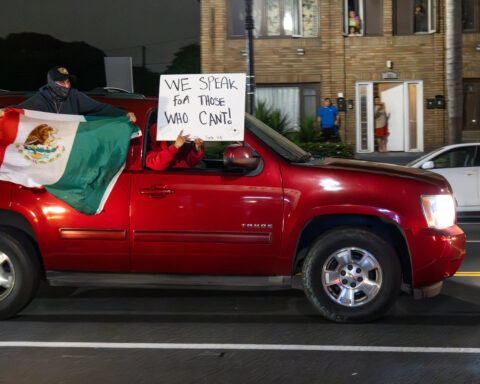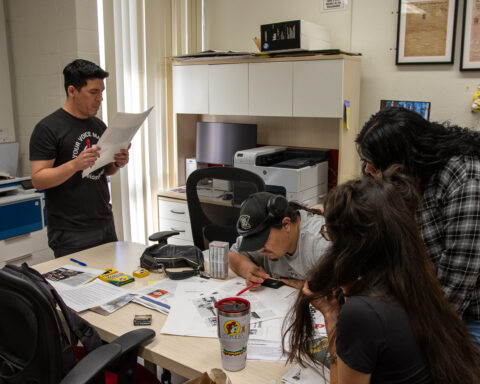Snacks and sandwiches aren’t the only quick food options at campus stores anymore — that is, if you can afford one of Everytable’s new grab-and-go dishes. The L.A.-based company is known for selling eco-friendly, ready-to-heat meals at variable prices competitive with fast food, but the school’s wholesale model means students are paying more than the company intended.
Last month, the Don Express and the Campus Store started stocking Everytable’s chef-prepared gluten-free, vegetarian and vegan dishes for around $10 each. Recent meals varied from Puebla chicken tinga, vegan sesame teriyaki tofu to spaghetti squash. Salads included a vegetarian and gluten-free chipotle chimichurri salad and a kale Cesar.
“The idea of bringing fresh, affordable food on campus sounded like a great combination,” Adam O’Connor, Assistant Vice Chancellor Fiscal Services said.
Everytable’s mission is to sell healthy food to underserved communities at a flexible cost. The business runs its own small stores across Los Angeles, where they sell pre-prepared dishes at variable prices. This means that the cost of a kale salad at their store on Cal State L.A.’s campus costs $5.95 while the same salad at Everytable’s Santa Monica store is $7.95. The higher the income level of the area, the higher the prices of each meal.
Because of the district’s wholesale relationship with the company, however, the food at SAC is more expensive than it would be if the company ran its own store.
“I don’t wanna pay $10 for spaghetti [squash]. $5 or $6 is more doable,” student Janea Rose said. “If you go to taco truck you know it is going to taste better and it is like a half this price.”
The company doesn’t currently operate branded store in Orange County but has other wholesale agreements like with Santa Ana College. According to Jennie Adams, Auxiliary Services Director who is in charge of purchasing for SAC stores, at the time there is no location to house stand-alone operation on campus.
Not all students are concerned about food cost. Natalie Velez says the high price of Everytable products doesn’t make a difference.
“I don’t mind the price. I will buy it as long as it tastes good,” Velez said.
The Campus Store is a nonprofit organization and money collected from sales goes to cover overhead costs with the remainder donated to the school.
“The prices are based on the standard cost mark up for the Campus Store,” Adams said. “Any revenue over and above the cost of operations is returned to the College at the end of the fiscal year.”
- Homeless Students Struggle On Campus - December 10, 2019
- It’s Time to Value Freedom of Speech - December 9, 2019
- Nomination for the Aspen Prize - December 3, 2019
















